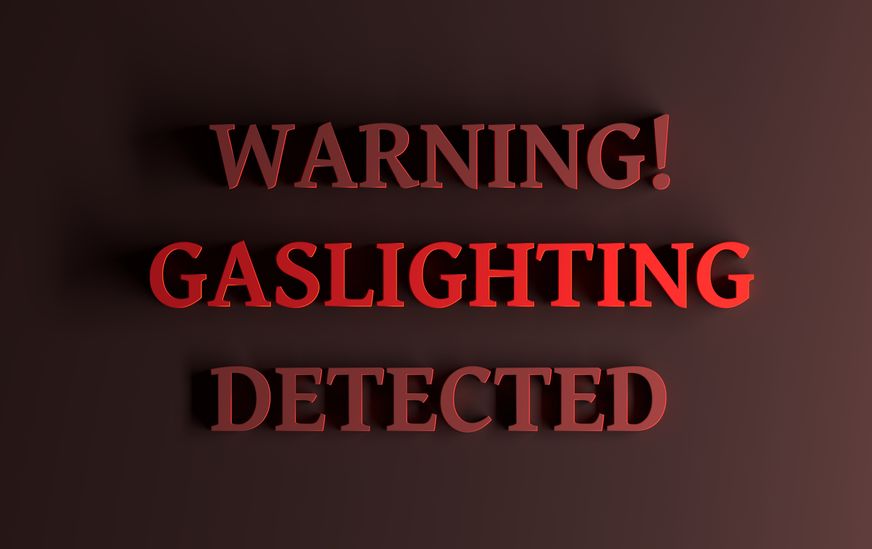Gaslighting in relationships and gaslighting in general continue to gain widespread attention. Why? One likely reason is that generations of people experienced this insidious form of emotional abuse in silence and isolation. There simply weren’t the resources available about gaslighting back then as there are now (or easy access to the resources that did exist).
Many became convinced they were the problem when, in fact, they were the victim. A sophisticated bag of tactics was employed to sap all hope and power from those being gaslighted. But, eventually, the psychology community switched the light on in a big way.
All of a sudden, people began to realize they weren’t “crazy”. They began reading articles, books, watching videos and speaking with informed counselors about the common tactics of gaslighting. They could check off every ploy that had been used against them for months or even years. It was enough to give some goosebumps.
That knowledge was very empowering to those stuck in the gaslighting cycle. But it wasn’t always enough to resolve the cycle of abuse by itself in many cases.
What is gaslighting and could it be happening to you in your relationship? Hopefully not, but what follows will give you a good idea either way.
What is Gaslighting?
Gaslighting is a form of emotional abuse that tends to wear you down over time. The ultimate goal is to get you to doubt everything about yourself so you can easily be manipulated and controlled. This could include questioning both your competence and sanity.
It’s particularly dangerous because of how badly it can damage your self-worth and how easily gaslighting can go undetected even by the most perceptive individuals. However, once you know some of the following warning signs, you’ll be able to protect yourself better.
Gaslighting Example Checklist
If you’re being gaslighted, it can be a helpless feeling, especially if this is happening in your marriage or romantic relationship. Gaslighting can also take place in a nation under tyranny, in a cultish setting, at work or with friends and family. Here are some common gaslighting signs in relationships.
Your “Saneness” is Being Questioned: Those being gaslighted are often told they’re “crazy” for thinking a certain way. It’s a manipulation tactic to get the abused to think they can’t trust their feelings or mental sanity. It also tends to make the victim rely even more heavily on the abuser for their sense of judgment.
You’re Being Accused of Gaslighting: A broader term for this is called projecting. Your spouse or partner accuses you of gaslighting or something else that they’re doing. If they’re involved in an affair, they may accuse you of an affair just to take the focus off of their actions.
The goal is to make you so unsure of yourself that you stop questioning their inappropriate behavior. Also, you may start feeling guilty for something you didn’t do. Just being falsely accused can be enough to begin feeling false guilt.
You’re Being Lied To: Deep down, you know what your partner is saying is a lie. Blatant lies, in fact. They know it too, but this is yet another tactic to keep you off-balanced and doubting yourself.
They’re Isolating You and Aligning Others Against You: Your gaslighter will attempt to isolate you from others to gain greater control over you. They also may tell others you’re crazy or discredit you to others in some other way to cut your support system out from under you.
Their Words and Actions Don’t Match: Once you’re armed with the knowledge of what gaslighting is, pay close attention to both your gaslighter’s words and actions. You’ll begin to notice the two are vastly different. Then, pay attention to their actions, not their words.
Gaslighting in Relationships: Is It Happening to You?
If so, this cycle can be difficult to break on your own. Gaslighting can leave you feeling powerless and your self-confidence shattered. But, with counseling, you can gain a better grasp of what healthy behavior is and isn’t. You can start to set boundaries to protect your wellbeing.
In her “Psychology Today” article entitled Rebuilding After a Gaslighting or Narcissistic Relationship, Stephanie A. Sarkis Ph.D. shares the following advice:
“Know the red flags of gaslighting…Gaslighters tend to prey upon people who care about others. That is a beautiful trait you have — there is nothing wrong with you opening your heart to others. Just do it now with an added layer of protection.”
Are you currently struggling with emotional abuse in your relationship? If so, Valencia Relationship Institute is here for you. Scheduling an appointment with us is quick and confidential. We provide counseling in Valencia, CA as well as the Burbank/Toluca Lake, CA region.





